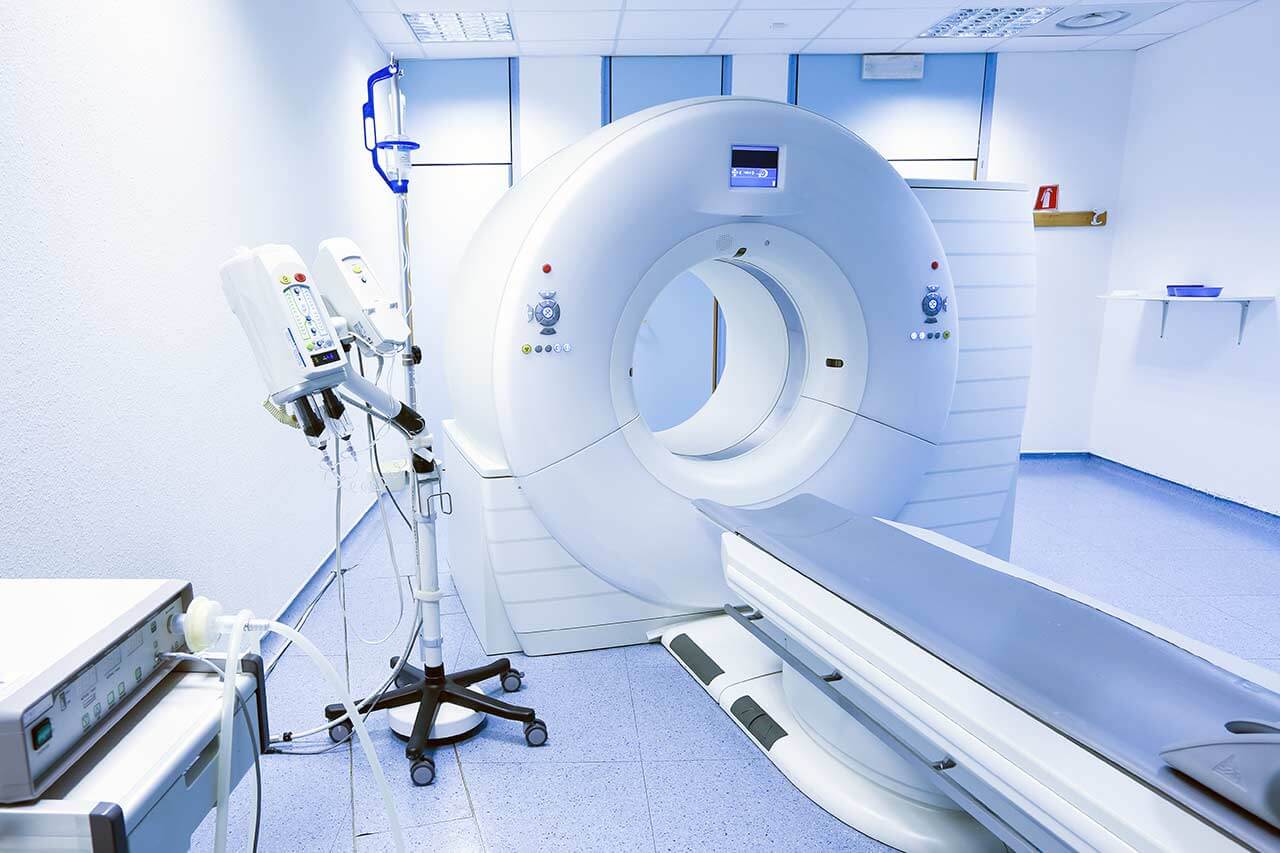
The program includes:
- Initial presentation in the clinic
- clinical history taking
- review of medical records
- physical examination
- laboratory tests:
- complete blood count
- biochemical blood test
- liver function tests:
(ALT, AST, GGT, AP, Bilirubin) - inflammation markers (CRP, ESR)
- blood coagulation analysis (aPTT, PT, INR)
- hepatitis serology:
- HCV IgM
- HCV IgG
- HCV RNA
- RT-PCR
- ELISA
- ultrasound of the liver
- fibroscanning (elastometry) of the liver
- nursing services
- services of all leading experts
- explanation of individual treatment plan
Required documents
- Medical records
Service
You may also book:
 BookingHealth Price from:
BookingHealth Price from:
About the department
The Department of Gastroenterology, Hepatology and Infectology at the University Hospital Heidelberg offers the full range of services in these fields and specializes in the diagnostics and treatment of diseases of the gastrointestinal tract, liver, and liver transplantation. One of the key activities is the therapy of oncological diseases of the digestive organs. The department is headed by Prof. Dr. med. Uta Merle.
Medical care is provided both on an outpatient and inpatient basis. In addition, the department operates an intensive care unit to provide round-the-clock assistance to critically ill patients. The department has modern equipment for diagnostic and therapeutic endoscopic procedures, ultrasound examinations, including interventional ones. The doctors of the department pay due attention to the comprehensive counseling of patients in all aspects of a given clinical situation.
The service range of the department includes:
- Ultrasound diagnostics
- Ultrasound examinations of all abdominal organs
- Doppler and duplex scanning
- Contrast-enhanced ultrasound
- Fine needle puncture biopsy under ultrasound guidance
- Real-time elastography
- Endoscopic examinations
- Diagnostics and treatment of gastrointestinal malignancies
- Stomach cancer
- Esophageal cancer
- Small and large bowel cancer
- Gallbladder and biliary tract cancer
- Pancreatic cancer
- Neuroendocrine tumors of the gastrointestinal tract and pancreas
- Rare types of cancer (for example, gastrointestinal stromal tumors)
- Surgical treatment
- Chemotherapy
- Radiation therapy
- Clinical trials
- Diagnostics and treatment of chronic inflammatory bowel disease
- Intensive care
- Gastrointestinal bleeding
- Acute and chronic liver diseases or liver failure
- Acute pancreatitis
- Severe septic shock
- Acute kidney failure
- Severe disorders of water and electrolyte balance
- Severe infectious diseases and intoxication
- Diagnostics and treatment of liver diseases
- Cirrhosis
- Hepatitis (special focus on viral and autoimmune hepatitis)
- Wilson's disease
- Liver failure
- Diagnostics and treatment of hemochromatosis
- Diagnostics and treatment of cholestasis
- Preparation and follow-up care after liver transplantation
- Other medical services
Photo: (с) depositphotos
About hospital
According to Focus magazine, the University Hospital Heidelberg ranks among the top five hospitals in Germany!
The hospital is one of the most advanced and reputable medical institutions not only in Germany but throughout Europe. There are more than 43 specialized departments and 13 medical institutes which cover all fields of modern medicine. A distinctive feature of the hospital is the presence of unique therapeutic methods for the treatment of complex and rare clinical cases.
Due to successful clinical practice, the hospital has been holding leading positions in the international medical arena for many years. The basis for this popularity is the combination of the very latest technologies, competent specialists, and active research activities, which allows introducing of revolutionary diagnostic and treatment methods, which save lives.
In addition to the outstanding medical achievements, it is worth noting a particularly friendly and pleasant atmosphere, and respectful attitude towards the patient. Both doctors and nursing staff make every effort to meet all the needs and wishes of the patient, pay due attention to each clinical case, and have personal communication with the patient, which contributes to a positive treatment result.
Photo: (с) depositphotos
Accommodation in hospital
Patients rooms
The patients of the University Hospital Heidelberg live in comfortable single and double rooms designed in bright colors. Each room is equipped with an ensuite bathroom with a shower and toilet. The patient rooms are quite spacious, they have a table with chairs for receiving visitors. Roomy wardrobes are provided for storing personal belongings. It is possible to connect to the Internet. In addition, the hospital offers enhanced-comfort rooms with a safe, refrigerator, and upholstered furniture. Patients have 24-hour access to the services of medical personnel.
Meals and Menus
The patient and his accompanying person have a daily choice of three menus. If you for some reason do not eat all the products, you will be offered an individual menu. Please inform the medical staff about your dietary preferences prior to the treatment.
Further details
Standard rooms include:
Religion
The religious services are available upon request.
Accompanying person
During the inpatient program, an accompanying person may stay with you in a room or hotel of your choice.
Hotel
During the outpatient program, you may live in a hotel of your choice. The managers will help you choose the most suitable options.
The hospital offers a full range of laboratory tests (general, hormonal, tests for infections, antibodies, tumor markers, etc.), genetic tests, various modifications of ultrasound scans, CT scans, MRI and PET / CT, angiography, myelography, biopsy and other examinations. Treatment with medications, endoscopic and robotic operations, stereotaxic interventions is carried out here, modern types of radiation therapy are also used. The hospital offers patients all the necessary therapeutic techniques.
- Endovascular treatment of liver pathologies with LigaSureTM, Ultracision® and Habib®-Sealer devices
- Correction of chest deformities in children (Nass operation)
- Minimally invasive direct coronary artery bypass grafting
- Replacement of ascending aorta (David procedure)
- Operations using the da Vinci robotic system
These are primary lung tumors and metastases in the lungs, benign and malignant liver pathologies, thyroid pathologies, gastroesophageal reflux disease, heart rhythm disturbances and heart failure, infertility, fibromyalgia, damages and pathologies of large joints, polyneuropathy and other diseases.
- Thoracic surgery
- Cardiac surgery
- Urology
- Orthopedics and traumatology
- Obstetrics and gynecology
The hospital's team consists of more than 13,000 highly qualified employees




